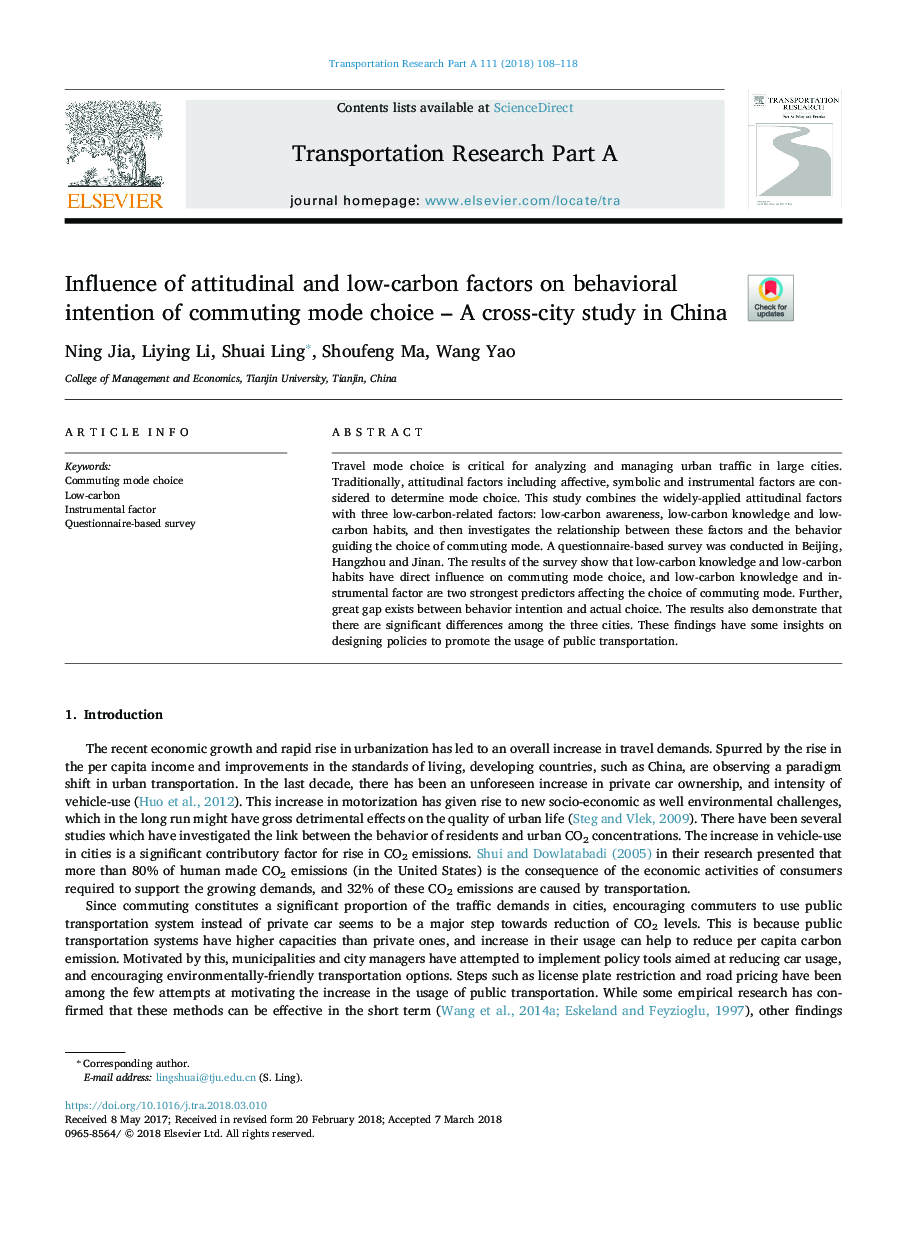| Article ID | Journal | Published Year | Pages | File Type |
|---|---|---|---|---|
| 6780255 | Transportation Research Part A: Policy and Practice | 2018 | 11 Pages |
Abstract
Travel mode choice is critical for analyzing and managing urban traffic in large cities. Traditionally, attitudinal factors including affective, symbolic and instrumental factors are considered to determine mode choice. This study combines the widely-applied attitudinal factors with three low-carbon-related factors: low-carbon awareness, low-carbon knowledge and low-carbon habits, and then investigates the relationship between these factors and the behavior guiding the choice of commuting mode. A questionnaire-based survey was conducted in Beijing, Hangzhou and Jinan. The results of the survey show that low-carbon knowledge and low-carbon habits have direct influence on commuting mode choice, and low-carbon knowledge and instrumental factor are two strongest predictors affecting the choice of commuting mode. Further, great gap exists between behavior intention and actual choice. The results also demonstrate that there are significant differences among the three cities. These findings have some insights on designing policies to promote the usage of public transportation.
Keywords
Related Topics
Physical Sciences and Engineering
Engineering
Civil and Structural Engineering
Authors
Ning Jia, Liying Li, Shuai Ling, Shoufeng Ma, Wang Yao,
